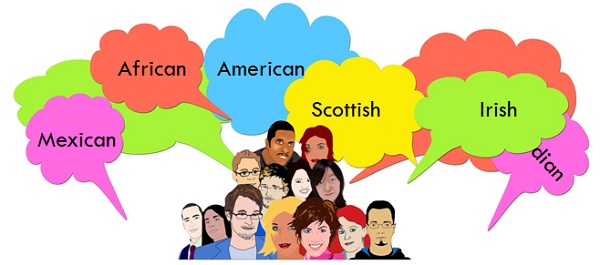Sociology Notes On – Ethnicity – For W.B.C.S. Examination.
- An ethnicity is a socially constructed category, the traits and parameters of which can change depending on the prevailing social and political context.Continue Reading Sociology Notes On – Ethnicity – For W.B.C.S. Examination.
- A situational ethnicity is an ethnic identity that is particular to a social setting or context.
- The various approaches to understanding ethnicity include primordialism, essentialism, perennialism, constructivism, modernism and instrumentalism.
- Ethnicity is distinct from race because ethnicity is based on social traits, while race is based on the belief that a certain group of people share particular biological characteristics.
- Ethnicity is distinct from race because ethnicity is based on social traits, while race is based on the belief that a certain group of people share particular biological characteristics.
- Ethnic nationalism is a political ideology which is the result of tying the concepts of cultural heritage and nationalism together.
- Ethnicity is a term that describes shared culture—the practices, values, and beliefs of a group. This might include shared language, religion, and traditions, among other commonalities. An ethnic group is a collection of people whose members identify with each other through a common heritage, consisting of a common culture which may also include a shared language or dialect. The group’s ethos or ideology may also stress common ancestry, religion, or race. The process that results in the emergence of an ethnicity is known as ethnogenesis.
Conceptual History of Ethnicity
Ethnicity is a constructed category, the characteristics and boundaries of which have been renegotiated and redefined over the years to suit different contexts and objectives.
Sociologist Max Weber asserted that ethnic groups were künstlich (artificial, i.e. a social construct) for three reasons. Firstly, they were based on a subjective belief in shared Gemeinschaft (community). Secondly, this belief in shared Gemeinschaft did not create the group; rather, the group created the belief. Thirdly, group formation resulted from the drive to monopolize power and status.
Therefore, the socio-cultural and behavioral differences between peoples of different ethnicities do not necessarily stem from inherited traits and tendencies derived from common descent; rather, the identification of an ethnic group is often socially and politically motivated.
“Ethnies” or Ethnic Categories
The following categories – “ethnic categories,” “ethnic networks,” “ethnies” or “ethnic communities,” and “situational ethnicity” – were developed in order to distinguish the instances when ethnic classification is the labeling of others and when it is a case of self-identification.
- An “ethnic category” is a category set up by those who are outside of the category. The members of an ethnic category are categorized by outsiders as being distinguished by attributes of a common name or emblem, a shared cultural element and a connection to a specific territory.
- At the level of “ethnic networks”, the group begins to have a sense of collectiveness; at this level, common myths of origin and shared cultural and biological heritage begin to emerge, at least among the elites of that group.
- At the level of “ethnies” or “ethnic communities”, the members themselves have clear conceptions of being “a named human population with myths of common ancestry, shared historical memories, and one or more common elements of culture, including an association with a homeland, and some degree of solidarity, at least among the elites”. In other words, an ethnie is self-defined as a group.
- A “situational ethnicity” is an ethnic identity that is chosen for the moment based on the social setting or situation.
Please subscribe here to get all future updates on this post/page/category/website


 Toll Free 1800 572 9282
Toll Free 1800 572 9282  mailus@wbcsmadeeasy.in
mailus@wbcsmadeeasy.in



















































































































